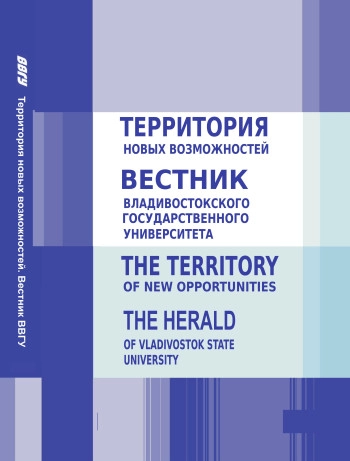Moskva, Moscow, Russian Federation
Moskva, Moscow, Russian Federation
The article examines the organizational and pedagogical conditions necessary for mastering the psychological aspect of pedagogical discourse (from the experience of training teachers of European languages). The focus is on the specifics of the psychological aspect of the teacher's professional speech and its impact on students. The authors analyze various approaches to mastering speech culture and the content of a teacher's speech, which play a key role in organizing effective interaction with subjects of the educational process. The research methodology is based on the analysis of scientific works by domestic and foreign scientists, as well as on the study of practical experience in teacher training. The authors conclude that in order to successfully master the psychological aspect of pedagogical discourse, future teachers need to develop emotional stability and assertiveness, empathy and active listening skills, and adaptability in communication. As organizational and pedagogical conditions for mastering these aspects, the authors suggest working with fiction, including foreign language literature, the use of theatrical techniques, game technologies and active forms of learning, modeling a positive reflective environment, including during events within the framework of production practices, involving students in scientific and extracurricular activities. This will ensure that future teachers are prepared to effectively carry out pedagogical communication and successfully solve professional problems.
higher education, training of teachers of foreign languages, pedagogical discourse, psychological aspects of communication
1. Chernyavskaya V.S.,Yekintsev V.I., Sviridenko E.I. Pedagogical intentionality as a component of the orientation of a modern teacher: theory and method. Scientific and methodological electronic journal "Concept". 2023; (9): 147–162. DOI:https://doi.org/10.24412/2304-120X-2023-11088. EDN LZHQOP
2. Aminov N.A., Chernyavskaya V.S. New principles of modern didactics: monograph. Vladivostok: Vladivostok State University of Economics and Service; 2019. 228 p. EDN: https://elibrary.ru/JBSMYA
3. Tareva E.G., Dorokhova F.M. Modern intercultural discourse: status in linguodidactics. Vestnik of the Moscow City University. Series: Philology. Theory of language. Language education. 2024; 1 (53): 124–135. DOI:https://doi.org/10.25688/2076-913X.2024.53.1.09. EDN KQGBYP
4. Marion Tellier. Lucile Cadet. The body and the voice of the teacher: theory and practice. Editions Maison des Langues. 2014; January: 57–65.
5. Delorme Vera. Jaskula Malgorzata Teachers' reflections on linguistic and cultural diversity in their classrooms: How do they contribute to learning? Recherches en didactique des langues et des cultures. 2024; January. URL: http://journals.openedition.org/rdlc/13900 (accessed date: 11.06.2025).
6. Moustapha-Sabeur Malak. Evaluate by voice and/or gesture. A teaching style linked to practical experience? Body, voice and languages in higher education. 2018; 37 (2) . URL: https://journals.openedition.org/apliut/6019 (accessed date: 11.06.2025). DOI: https://doi.org/10.4000/apliut.6019
7. Joséphine Rémon. Entering the profession of English teacher. Studies in language teaching. 2021; (37): 69–80.
8. Ivanova S.V., Bokova T.N. The vision of the "school of the future" in a postmodern perspective (based on comparative studies). Pedagogy. 2020; (6): 35–47. EDN DZXCLS
9. Desyaeva N.D. The content and structure of a teacher's teaching speech in modern digital realities. Elementary school. 2022; (8): 12–14. DOI:https://doi.org/10.51906/0027-7371_2022_8_12. EDN NYYTNS
10. Sorokovyh G.V. The culture of speech of a foreign language teacher as a linguodidactic phenomenon. Actual problems of pedagogy and psychology: challenges of the 21st century. Iss. 3. Moscow: Limited Liability Company PERSPEKTIVA Publishing and Trading House; 2019. P. 158–162. EDN JBVLAY
11. Zinovieva T.I. Strategies for mastering intonation culture by future teachers from the standpoint of axiology. Axiological linguistics: ideological and value aspects in school and university teaching of the Russian language: Proceedings of the international scientific and practical conference dedicated to the anniversary of Professor A.D. Deikina and her scientific school: in 2 parts. Vol. 1 (Moscow, March 22–23, 2019). Moscow: Moscow Pedagogical State University; 2019. P. 233–238. EDN YDCFRK
12. Golovchanskaya I.I. The discipline "Phonostilistics" in the system of foreign language teacher training: problems and prospects. Romance notebooks. Moscow: Limited Liability Company "Languages of the Peoples of the World"; 2024. P. 57–68. EDN LABHXA
13. Tareva E.G. The digital age and pedagogical professions. Bulletin of the Moscow State Pedagogical University. Series: Philosophical sciences. 2018; 3 (27): 85–90. EDN XZOADR
14. Practicum of professional communication / N.V. Yazykova, V.A. Goncharova, O.O. Korzun [et al.]; editors: N.V. Yazykova, S.N. Makeeva. Moscow: Moscow City University; 2020. 163 p. ISBN 978-5-89191-090-4. EDN ENEEKL
15. Morozova V.I., Sergeev N.K. Professional competence of a future teacher in interaction with family in inclusive educational institutions in a post-industrial society. Proceedings of the Volgograd State Pedagogical University. 2020; 10 (153): 22–31. EDN NNUKIA
16. Tareva E.G., Malykh O.A. Approaches to the study of the problem of phonological competence formation in a language university. Language and social dynamics. 2013; (13-1): 310–312. EDN TAOPVF





